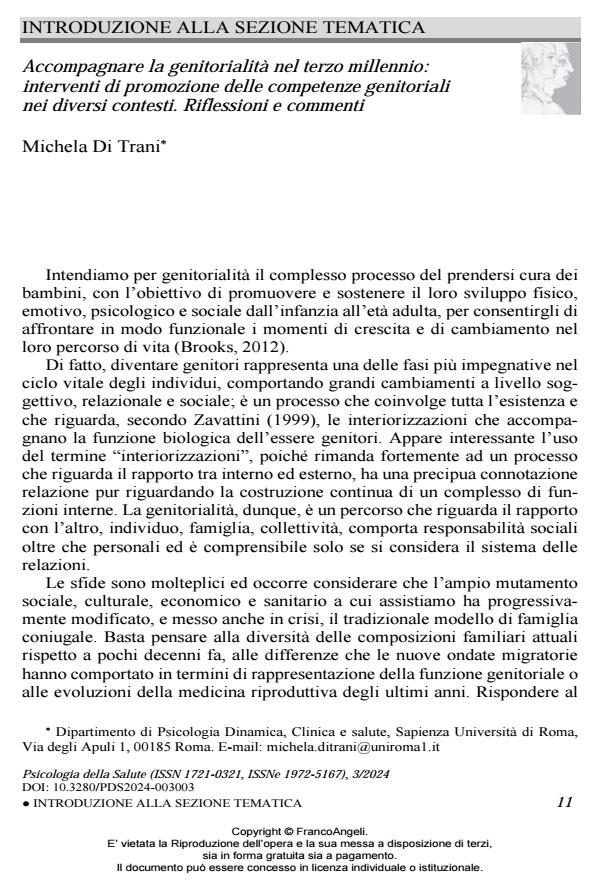Accompagnare la genitorialità nel terzo millennio: interventi di promozione delle competenze genitoriali nei diversi contesti. Riflessioni e commenti
Journal title PSICOLOGIA DELLA SALUTE
Author/s Michela Di Trani
Publishing Year 2024 Issue 2024/3
Language Italian Pages 6 P. 11-16 File size 210 KB
DOI 10.3280/PDS2024-003003
DOI is like a bar code for intellectual property: to have more infomation
click here
Below, you can see the article first page
If you want to buy this article in PDF format, you can do it, following the instructions to buy download credits

FrancoAngeli is member of Publishers International Linking Association, Inc (PILA), a not-for-profit association which run the CrossRef service enabling links to and from online scholarly content.
Michela Di Trani, Accompagnare la genitorialità nel terzo millennio: interventi di promozione delle competenze genitoriali nei diversi contesti. Riflessioni e commenti in "PSICOLOGIA DELLA SALUTE" 3/2024, pp 11-16, DOI: 10.3280/PDS2024-003003